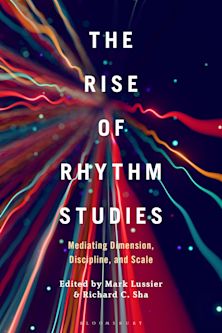- Home
- ACADEMIC
- Literary Studies
- Literary Theory
- Trauma and Tears in The Book of Margery Kempe
This product is usually dispatched within 1 week
- Delivery and returns info
-
Free US delivery on orders $35 or over
You must sign in to add this item to your wishlist. Please sign in or create an account
Description
Employing the use of trauma theory, Rachel Scoggins uncovers a unique perspective to medieval femininity and spirituality present within the autobiography of Margery Kempe.
Scoggins argues that Kempe's work illustrates a situation where spirituality and sexuality co-exist in her devotion to God. In her autobiography, Kempe frames her religious journey through images of the body and female sexuality with the aim to take agency of both her own bodily autonomy and her religious expression. Eventually, Kempe reclaims her voice and control by leaning into the intersection of spirituality and sensuality and embracing female agency as she navigates male-dominated religious spaces. Trauma and Tears in The Book of Margery Kempe presents Kempe not as a hysterical or hypocritical figure, but a woman with an interesting and important view of everyday spiritual engagement through the eyes of a secular woman.
Table of Contents
Introduction
1. Finding Voice Through Emotional and Physical Trauma
2. Rejecting Traditional Marriage and Negotiating Bodily Agency
3. Self-Inflicted Punishment as a Trauma Response
4. Christ as a Safe Space
5. Spectacle and Heretical Actions That Lead to Violence
6. The Need to Be Noticed: Constructing a Sense of Self-Worth through the Body, Knowledge, and Conflict
7. The Search for Safe Spaces through Margery's Relationships with Women
Conclusion
Bibliography
Notes
Product details

| Published | Feb 05 2026 |
|---|---|
| Format | Hardback |
| Edition | 1st |
| Extent | 194 |
| ISBN | 9781666932362 |
| Imprint | Bloomsbury Academic |
| Dimensions | 9 x 6 inches |
| Series | Studies in Medieval Literature |
| Publisher | Bloomsbury Publishing |
About the contributors

ONLINE RESOURCES
Bloomsbury Collections
This book is available on Bloomsbury Collections where your library has access.



































